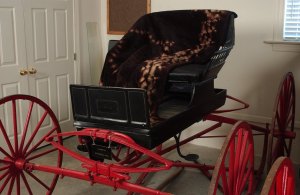
20 July 1866 – It was a magnificent battle, valiantly fought and won in two hours. This was naval history – the under-armed Austrian Imperial Navy fleet trouncing double its size, using classic ramming tactics against the newest designs in naval strength. The daring and courage, the leadership – Ship’s Surgeon Ephraim Epstein was moved and thrilled, full of pride and admiration. He was sobered, too. Even from outside the fray he’d seen and heard the injured, dying and drowning men, the scrambles for rescue. The Seehund took on some of the wounded, including many from the Italian fleet, for their casualties ran to hundreds. Austria had only thirty-eight lost, 138 hurt. It was time to work. Like other naval Surgeons, Ephraim combined all three branches of medicine. He was physician, diagnosing and prescribing; he was apothecary, preparing and dispensing medicine; and he was surgeon, performing operations. He completed two amputations, six extractions of bullets and set two broken limbs. Burns and gashes needed treating too. From his Austrian patients, as he worked, Ephraim learned more about the triumph: how proud the men were of Admiral Tegetthoff, how he had drilled them, in maneuvers, in gunnery, how he planned the ramming even though the ship armoring was incomplete. Most of all, he showed he loved his men, he believed in them and their morale.
Late at night, exhausted and exhilarated by all he had witnessed, Ephraim began to compose a description of the extraordinary day.
Here, above, is a newly discovered photograph of Ephraim Epstein in uniform to mark the anniversary of the astonishing Battle of Lissa 152 years ago, 20 July 1866. Restless Dr Epstein, 37, left his post at the great Vienna General Hospital for a commission in the Austrian Imperial Navy. See here for an illustrated historical description
In The Extraordinary Dr Epstein, Chapters 19, Fierce as a Leopard, Light as an Eagle, and 20, Battle, set out the lead-up and Ephraim’s role. Many thanks to Professor Consultant Barry Kay for finding this photo in The American Journal of Clinical Medicine, Abbott Clinical Publishing Company 1910. See my earlier postings for a quick insight: As rumors built and First clash of ironclad fleets
 famous Battle of Lissa, 20 July 1866. He wrote an account and an epic poem for which he was personally thanked by Tegetthoff, and rewarded by Emperor Franz Josef. Interested in the book With Tegettoff at Lissa: Memoirs of an Officer in the Austrian Naval Officer 1861-1866 https://amzn.to/2Oin0d6 ? You may also be interested in Dr Epstein’s account of Tegetthoff and the battle in the biographical novel, The Extraordinary Dr Epstein https://amzn.to/2OeTYeB
famous Battle of Lissa, 20 July 1866. He wrote an account and an epic poem for which he was personally thanked by Tegetthoff, and rewarded by Emperor Franz Josef. Interested in the book With Tegettoff at Lissa: Memoirs of an Officer in the Austrian Naval Officer 1861-1866 https://amzn.to/2Oin0d6 ? You may also be interested in Dr Epstein’s account of Tegetthoff and the battle in the biographical novel, The Extraordinary Dr Epstein https://amzn.to/2OeTYeB







